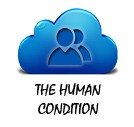 |
|||||||||||||||||||||||||||||
   
Balancing Act: The Newsletter (No. 209, January 2017) Balancing Act® is our registered trademark. You are encouraged to share the contents with others with appropriate attribution. Please use the ® whenever the phrase "Balancing Act" is used in connection with this newsletter or our workshops.. NOTE: To change addresses, or to unsubscribe, use THIS LINK: http://mh.databack.com/form/ba?E=#email# Balancing act is in four sections this month: 1. Techniques for Balance 2. Musings 3. The Human Condition: Resolutions 4. ORTIYKMWOYBNT-O Department Follow me on Twitter! You can find me here: And find me on Facebook: Free consulting newsletter: The Million Dollar Consulting® Mindset:

• Endure your pain, but limit your suffering. • Listen. It's hard to learn when you're speaking. • The really good deed is the one for which you expect no thanks. • It snows in the winter in the north, always has. It's more effective to prepare for it than to whine about it. • A smile to a harried worker is often a quick gift. • If you want to influence someone, articulate what's in it for them. • Companies owe employees positive conditions and support, but employees owe that company their best efforts, as well. • You're simply burning money if you don't follow up on money owed to you and overdue. • If you don't enjoy throwing snowballs, you've lost your inner child. • Don't get drunk on New Year's Eve, which is for amateurs—get happy about your life. 
"I'm Dreaming of A White Christmas" was written by a Jewish man, Irving Berlin, while sitting among the palm trees in southern California. According to Guinness, the Bing Crosby version is the highest selling single recording in history, at about 100 million. Total sales by all artists are about 150 million. The song has become iconic. It's original, visceral power was its time: the early stages of World War II, when sons, brothers, fathers, and other family members wouldn't be home. (Hence, the intense popularity of "I'll Be Home for Christmas" and "Have Yourself A Merry Little Christmas." If you think of the lyrics in terms of separation and potentially permanent loss, they are extraordinarily powerful. Most people listening today can't relate to that time.) I've never been a big fan of "you had to be there" or "you could never understand." I'll admit that I was never a soldier in combat, didn't grow up as a different race or ethnicity, and was never adrift in a life raft. But I do have empathy, I can listen, and I can relate. I might not be a simulacrum but I can understand. Similarly, I don't expect you to be a scuba diver to understand how I almost drowned, or an instructor to understand my nerve-wracking first session, or a parent to understand our feelings when we learned our daughter was in an auto wreck in Syracuse. We need to take pains to understand each other, to park our own perceptions, and to listen to others' stories and emotions. And we need to stop the nonsense that we're incapable of understanding the plight of others. Perhaps we never suffered as much (or rejoiced as much) but we are certainly capable of appreciating the suffering. "I can't imagine what it was like" is a polite term but meaningless. We can certainly imagine it, and if we allow ourselves, we can at least partially feel it. The first is intellectual empathy, and the second is emotional empathy. No one ever discredited Irving Berlin by suggesting that the song would be improved by a Christian writing it in New England during the winter. The song is accurate and powerful. It evokes the right sentiments. That's because it appeals to the right emotions and evokes the right responses in an accurate manner, and that's all that really matters. 
New Year's Resolutions are just an excuse to pretend that we're cognizant of our flaws, eager about improvements, and willing to take accountability for positive change. If this were an "over/under" bet in Vegas, the number would be 1 and I'd take the under. (Talk to your gambling friends if this is too obtuse.) We all have the habit of confusing the identification of a problem with the resolution on that problem; with the creation of an aspiration as the achievement of that aspiration. More recently, we hear people proclaiming intent in public, as though that proclamation in front of others embodies a volitional force. The Cleveland Browns could chant in unison in the middle of the city all day long that they're going to beat the Patriots, but that's not going to happen unless the Browns get a new and brilliant general manager, an innovative coach, and 45 decent players (of which they have none of the aforementioned at the moment). Minatory prospects of others holding us to our word possess little persuasive power (since we're often reciprocally weaseling out of resolutions). Of course, we feel better having made the resolution—"I've finally decided formally that I will lose weight," "It's good to have acknowledged that I have to spend more time with the family"—but that is more than offset a month later when we're depressed at our utter lack of progress in achieving it. (This is why February is such a short month. People can't stand another couple of days of self-flagellation and need to hurry spring along.) On a more localized basis, this is why garages are never cleaned out, bulbs not replaced, and cars not washed. ("I need to clean out this garage. Okay, that's a great acknowledgement, I feel better already, I think I'll go walk the dog.") A lot of people trying to walk barefoot on hot coals in the attempt to "master their fears" merely burn their feet. It's not because they're insufficiently motivated or haven't chanted the right mantra, it's because the fire was made too hot relative to the perspiration on their feet. My message to you is STOP IT AND GET SERIOUS. I'm slightly more verbose than Bob Newhart: https://www.youtube.com/watch?v=Ow0lr63y4Mw. Identify not merely what you need to do or accomplish, but when, where, and how, then put that on a calendar or in your electronic whatsis. You're better offer doing something imperfectly than merely perfectly identifying it. Take a look at this column. You probably think you could improve it. But I got it written. 
After surgery to correct a crooked ring finger, I was given therapy instructions on how to massage it and gain flexibility. I absently would do this four times a day while watching football or sitting on a plane or reading a book. One day I realized I had much greater flexibility and no pain whatsoever, so I must have “broken through” some scar tissue or critical resistance. When I looked down to see if the swelling had subsided, I realized I had been working on the wrong finger. (It did have, however, excellent flexibility.) 
I’ve run two free pilots to test the technology, and now we’re off and running in 2017. Watch a one-hour workshop, rich in content, and ask questions while in progress, no matter where you are in the world. They are also recorded, in case you can’t make the live event or want to retain the actual broadcast. I’m offering six, as detailed below, at $75 each, or $400 for all six. You can pay here: http://www.alanweiss.com/store/quick-pay/ Schedule: • Feb. 23, 2017: The Strategist - How to set strategies for organizations or individuals • Apr. 18, 2017: The Innovator - A methodology for systematic innovation • Jun. 13, 2017: Creating 6-figure Projects - Consistently and effectively • Sep. 19, 2017: The Advisor - Advisory work as your primary intervention • Oct. 17, 2017: Abundance - The mindset of success, happiness, and growth • Nov. 16, 2017: The Expert - How to command a room, discussion, and direction
Having problems viewing this email, click here. © Alan Weiss 2017 |
Balancing Act® is our registered trademark. You are encouraged to share the contents with others with appropriate attribution. Please use the ® whenever the phrase "Balancing Act" is used in connection with this newsletter or our workshops.

Stop beating yourself up and starting building yourself up. Alan Weiss |
||||||||||||||||||||||||||||
 |
|||||||||||||||||||||||||||||









